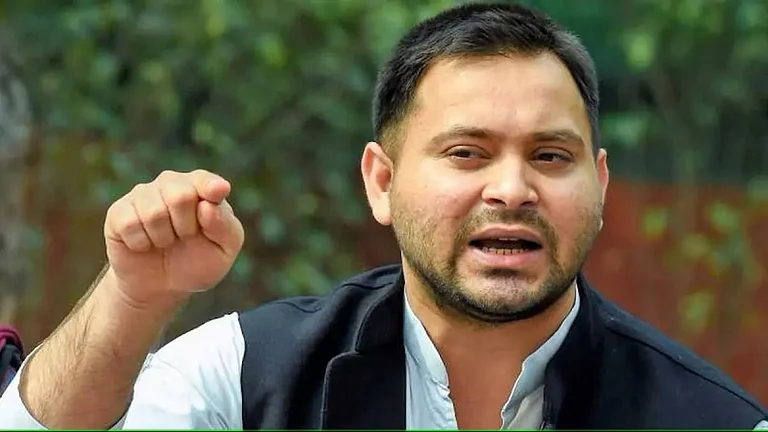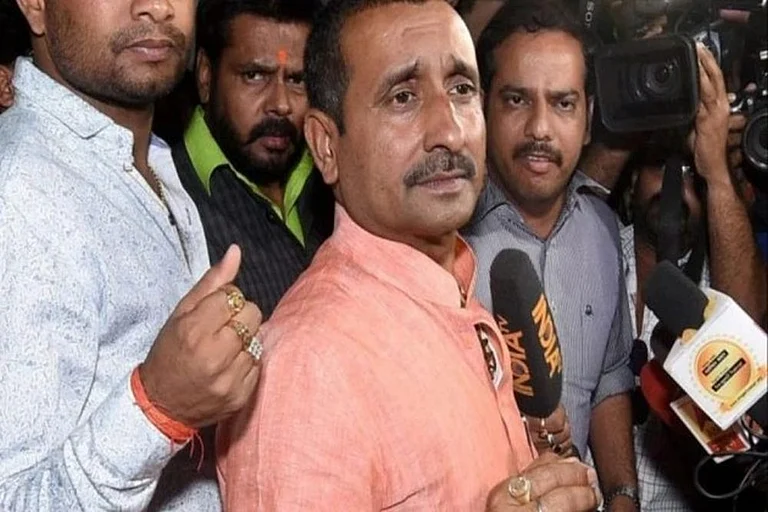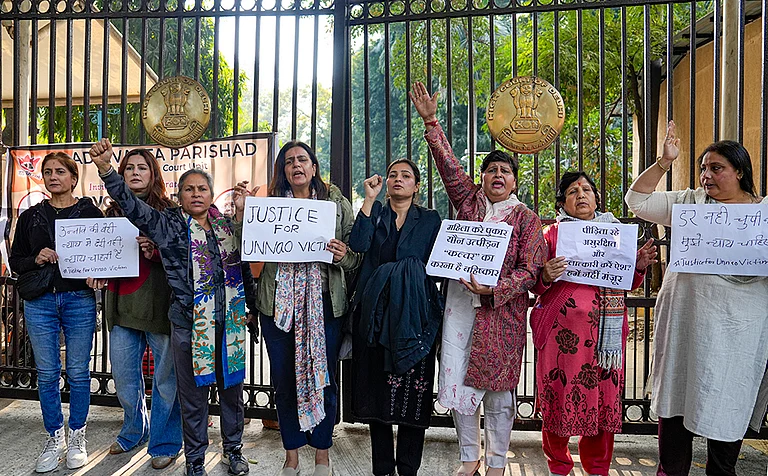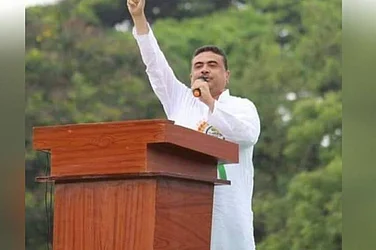The Central Bureau of Investigation on Friday justified its arrest of Delhi Chief Minister Arvind Kejriwal in the excise policy case, saying it was necessary as he chose to remain "evasive and non-cooperative" in his responses to the agency's questions.
The central probe agency, in its detail affidavit filed in response to Kejriwal's plea challenging his arrest by it, alleged that all the major decisions in the formulation of the now-scrapped excise policy were taken at the CM's behest with the complicity of his then deputy Manish Sisodia.
The CBI claimed that Kejriwal was trying to "politically sensationalise" the case, saying that he was involved in the criminal conspiracy in the formulation and implementation of the excise policy.
The Aam Aadmi Party (AAP) chief's arrest on June 26 was necessary to reach a just conclusion in the probe as he was intentionally "derailing" the investigation, the affidavit said.
"The necessity to arrest also arose based on the materials on record and since the petitioner chose to remain evasive and non-cooperative during his examination on June 25," it added.
The federal probe agency was taken on record by a Supreme Court bench of Justices Surya Kant and Ujjal Bhuyan and posted the matter for further hearing on September 5.
"It is most respectfully submitted that the influence and clout of the petitioner is evident, and he commands influence not only over the Government of GNCT of Delhi being the Chief Minister, but also over any or all relevant decisions, activities concerning the Aam Aadmi Party, being its supremo and national convenor. He enjoys a close nexus with the officials and bureaucrats," the agency said.
The affidavit also noted that Kejriwal has been confronted with several sensitive documents and witnesses' accounts, adding that he is likely to influence them.
Kejriwal is not entitled to any parity with the other co-accused as any and all decisions of the government and the party were taken only as per his decisions.
"Even otherwise, bail granted to co-accused has no bearing on a petition challenging the legality of the arrest of the petitioner," it said, adding that the CM's release on bail will "gravely prejudice" the trial of the case.
The affidavit noted that the July 12 order, granting interim bail to the AAP chief in an excise policy-linked money laundering case, has no bearing on the CBI's case in which he faces corruption charges.
"As far as the averments regarding interim bail on medical grounds is concerned, it is humbly submitted that regarding the ailments, the treatment can be provided at the Tihar Jail hospital or any of its referral hospital as per jail rules & manuals, which is being already done. No case has been made out by the Petitioner to be released on medical bail, which ought to be granted only if the treatment is not possible in the jail," CBI's affidavit read.
Initially, Kejriwal had been asked to join the investigation under Code of Criminal Procedure (CrPC) Section 160 as one of the persons familiar with the facts of the case. However, after discovering certain material, suspicion grew towards the CM.
"As the investigation progressed, it started becoming clear that the petitioner (Kejriwal) has a pivotal role in the formulation of the new excise policy," it added.
The CBI sought necessary permission under Section 17-A of the Prevention of Corruption Act from the competent authority and obtained the same on April 23.
"To summarise, the petitioner has been involved in the criminal conspiracy in the formulation and implementation of the Delhi Excise Policy 2021-22, more specifically when any or all decisions of the government and the party were taken only as per his directions. He already had the preconceived idea of the privatisation of the excise policy," it said.
The federal agency alleged that Kejriwal deliberately tweaked and manipulated the excise policy and improved the profit margin of wholesalers from 5 per cent to 12 per cent without any rationale.
He caused "undue windfall gains" to the wholesalers in return for an illegal gratification of Rs 100 crore from the 'South Group' to meet the election related expenses of AAP in Goa.
Further, during interrogation on June 25 in Tihar Jail, Kejriwal had failed to give satisfactory replies to queries regarding his role in demanding Rs 100 crore from the 'South Group'.
"He further gave evasive replies regarding his role and the role of other co-accused in respect of criminal conspiracy hatched. His replies were contrary to the oral and documentary evidence gathered by CBI during the investigation and he failed to disclose the facts truthfully, despite being confronted with the incriminating evidence," CBI's affidavit said.













.png?auto=format%2Ccompress&fit=max&format=webp&w=376&dpr=2.0)




.png?w=200&auto=format%2Ccompress&fit=max)







